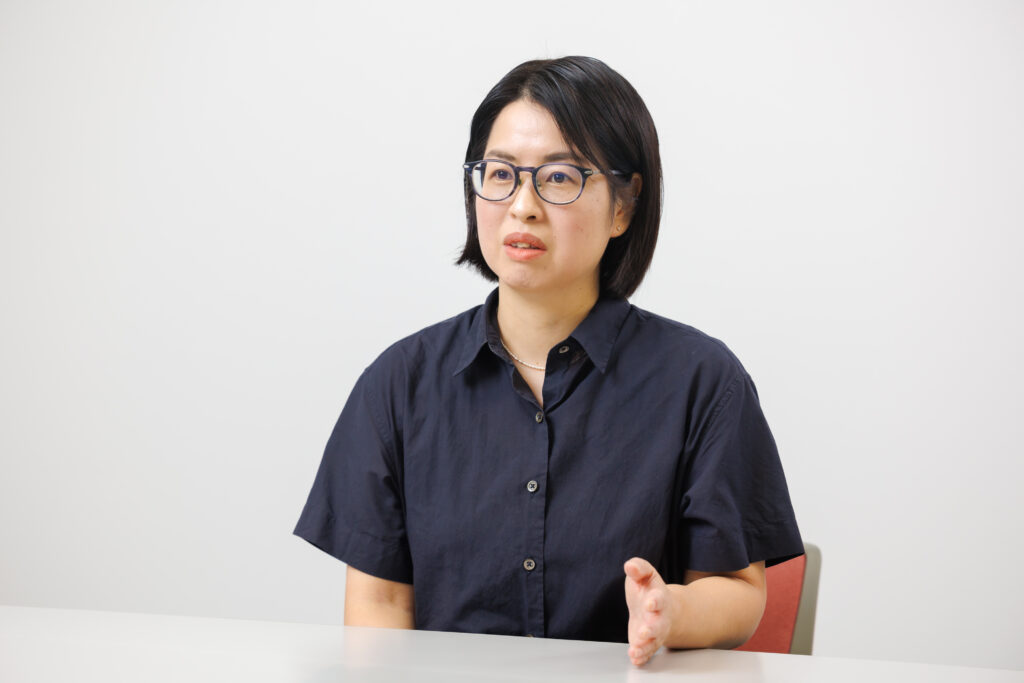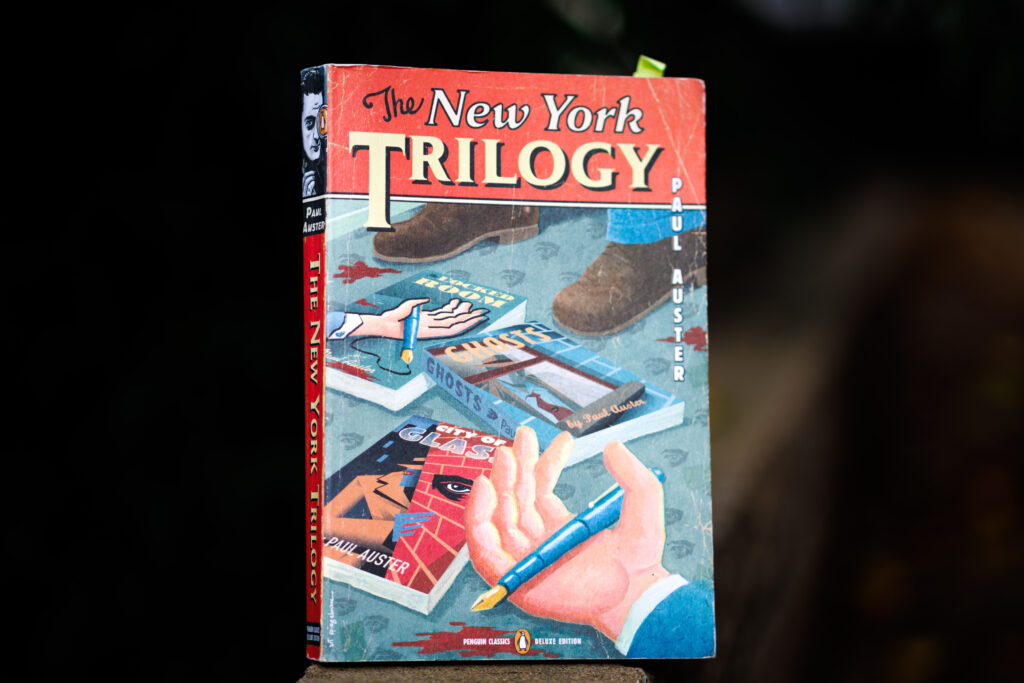
Associate Professor Keiko Shimojo of the Faculty of Humanities, who specializes in American literature, is conducting research on the contemporary American writer Paul Auster. Her research examines and considers the innate power of language, while exploring the question, “How words shape our thoughts” that is a characteristic of Auster’s works.
My area of specialization is American literature, and I have been conducting research on the contemporary writer Paul Auster. Auster is a writer known for writing slightly unusual novels that deliberately make use of the framework of detective novels, yet leave some mysteries unresolved.
One example of this is “City of Glass,” one of Auster’s earlier works, and the first in his series of novels known as “The New York Trilogy.” One evening, the protagonist, a novelist named Quinn answers a misdialed telephone call intended for a private detective. He somehow decides to pretend that he is the detective and to accept the job, then begins an undercover investigation of a former university professor.
However, regarding the detective case, nothing dramatic occurs during the novel. Quinn persistently follows the former professor who wanders around the bustling streets of New York, but at one point, the professor vanishes without a trace. Little by little, the boundary between fiction and reality disappears from Quinn’s mind, and he can no longer tell who he is. The mysteries in the novel remain unsolved at the end. This is a work that makes one think about human existence.
How can you prove who you are –with your name or a story of your past?

What is human existence? Many would come across this question while reading Auster’s fiction. If you were in a society where there was no one who knew your name or your past, how would you prove who you are? Can your name still serve as proof of your existence in such a situation? Does it matter if you share a fictional account of your past with them? What if that fictional story becomes part of your real life? Auster’s works continuously question what makes a person who they are.
Trust and distrust, and certainty and uncertainty regarding words are also common themes. For example, is it possible to convey “true” memories through words? Does our reality directly produce stories, or do stories shape our reality instead? Auster seems to believe that we don’t have control over language. On the contrary, he appears to suggest that words have the power to influence us and our reality.
What would words do to us? This is a long-standing question in literature. Auster is a writer who relentlessly explores the mysteries that lie between language and us.
Literary research fosters the ability to detect essential qualities needed for the present age
As I conduct my research, I place the utmost importance on close reading of texts—it might look unexciting and unremarkable, but it is essential for my research. When you carefully read a text over and over again, you would realize various intriguing facts— in some cases, a certain word is repeatedly used at critical scenes, and in others, some minor characters actually play crucial roles in the background.
Furthermore, I focus my attention not only on authors and their writings, but also on more general topics such as social-history of the United States for a better understanding of those works.
Even though it may seem slightly out of place in literature, one of the most common issues in Auster’s works is money. He often depicts language as something exchangeable for currency, and he repeatedly refers to a biographical fact that his father’s death and subsequent inheritance money allowed Auster to become a full-time writer.
Going forward, I would like to further explore monetary concepts in literature, such as work ethics and economic activities in the United States, or the philosophical meaning of money passed from the dead to the bereaved.
Why literature now? —today we have a number of social media platforms for sending out words to the public. Many people pick up their digital devices instead of books and incessantly feed and consume words at an almost unprecedented speed. Nevertheless, I believe that this is precisely where hard-earned expertise in literary research is called in; it can help us sort things out with multifaceted analyses of texts, and it can also bring our attention to the connotations and the impacts that those texts would have on us and our reality.
In other words, research on literature provides one the opportunity to cultivate metacognition that enables people to perceive the world based on the idea that our linguistic activities can have an influence in shaping reality.
The book I recommend
“The New York Trilogy“
by Paul Auster, Penguin Books

A collection of three novellas set in New York City. I read the first one, “City of Glass,” when I was looking for a subject of my graduation thesis. It was a mind-blowing experience and I became fascinated with Auster. This book changed the course of my life—I had never thought about a career in academia, but it led me to my current path of research.
-
Keiko Shimojo
- Associate Professor
Department of English Literature
Faculty of Humanities
- Associate Professor
-
Received her B.A. from Fukuoka Women’s University, M.A. in English from the State University of New York at Albany, and Ph.D. in literature from Fukuoka Women’s University. Served as Associate Professor in Faculty of Education and Culture, University of Miyazaki, and as Associate Professor in Faculty of Languages and Cultures, Kyushu University, before taking up current position in 2020.
- Department of English Literature
Interviewed: September 2022